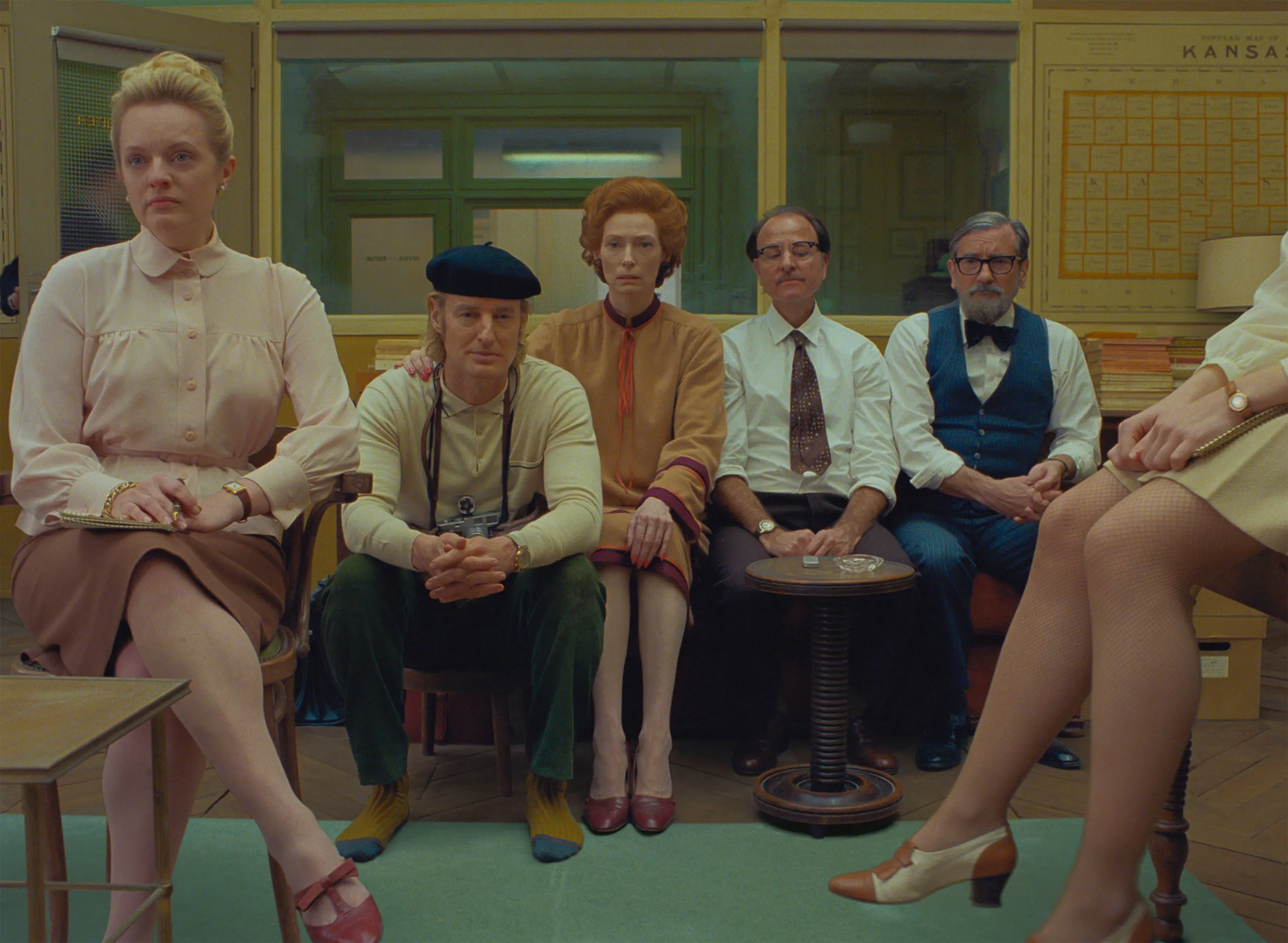I recently had the occasion to see the new Wes Anderson film, The French Dispatch, and it did not disappoint. This is particularly true because I – along with some members of my writing team – love Anderson’s films and can’t wait for each new one.
If you’re familiar with Anderson, his work has a distinctive visual style and storytelling cadence, which seems to become more intricate and refined with each passing film. In my mind, his wonderful color schemes and clever dialog serve as the antidote for today’s wildly popular, yet noxious, CGI comic-book fare. Even better, his ensemble casts always include droll, funny and slightly quirky actors like Bill Murray, Tilda Swinton, Willem Dafoe, Owen Wilson, and Bob Balaban, among others.
While it might seem odd that we’re writing about a movie from one of our favorite filmmakers here in a PR blog, it is because The French Dispatch is a celebration of writing. Our content team loves what we do, and we love the old-school journalistic integrity and high-quality writing that Anderson’s movie salutes.
Set at a fictional international magazine that appears intentionally designed to seem like The New Yorker of old, the story comes to us from the fictional town of Ennui-sur-Blasé (not kidding) in France. The era in which the film is set comes across as vaguely mid-century to the early 70s, when reading news from far-off lands was done in print and required more commitment than just swiping the screen of a mobile device.
The film itself focuses on four stories (or a portmanteau, if you will) originating from the Dispatch, which is the international magazine supplement published by the fictional Liberty Kansas Evening Sun. Bill Murray, as the meticulous and mildly crusty Dispatch editor, supervises the production of the latest issue.
As with The New Yorker, each story in the Dispatch becomes a several-thousand-word exploration of time, place and people (albeit fictional). Upstanding to nearly a fault, Murray illuminates how the great editors of the day combined a pure love for good writing with a lust for precision in the use of language and a simultaneous desire to protect authors from commercial interests.
Much of the film’s intention is conveyed when Murray instructs his staff – just before going to press – that they are to “cut some ads,” “shrink the masthead,” and “order more paper,” because his mission is to make room for more quality words.
The French Dispatch is all about those quality words and how a great piece of journalism can engage and delight. As a communications professional at an agency full of former journalists and creative types, I can think of few better films to inspire us when it comes to working hard to create great stories for our clients.



